WAR BREEDS
FAMINE ACROSS
SOUTH SUDAN
Stories by Patrick Nicholson.
Photos by Matthieu Alexandre, Mark Mitchell, David Mutua, Patrick Nicholson, Ilvy Njiokiktjien
Stories by Patrick Nicholson.
Photos by Matthieu Alexandre, Mark Mitchell, David Mutua, Patrick Nicholson, Ilvy Njiokiktjien
said Julia Kefi, a 65 year old widow living in Rajaf, a rural village in South Sudan. “So I set off at 7 am to find wild vegetables and am returning now at midday. Food in the bush is becoming scarce. Once that’s finished, we will wait for death.”
Sometimes Julia is too weak to make the arduous trip into the bush. She depends on aid from the Church or her friends, other elderly women, mostly widows too. “We share so that everyone makes it to the end of the day,” she said.
Rosa Iyo offers her some unripe pawpaw to take away the pain and dizziness that comes with an empty stomach. Rosa has at least 10 years on her friend, but must work just as hard. She looks after her husband George, a 90 year old Congolese refugee unable to walk after being tortured.
The journey to find sustenance is perilous due to armed gangs terrorising the local people. “We have to go because of hunger,” she said. “If you get killed, then you have to accept that it’s your time. If you live, then God is with you.”
“Hunger is the worst…You go without a meal from sun up to sundown. The children have porridge, but you go without so that they can eat.”
Rajaf is 45 minutes drive from the South Sudan capital Juba. It’s a small hamlet on the banks of the Nile dominated by a largish church.
“Just this week, people with guns came to our farms and took everything,” said Joseph Swaka Kenyi, a local. “If you go to the bush for firewood, you can get shot. A women went to her fields with her children and the children were kidnapped.”
Without money from selling firewood the families cannot buy food. “Hunger is the worst,” said Joseph. “You go without a meal from sun up to sundown. The children have porridge, but you go without so that they can eat.”
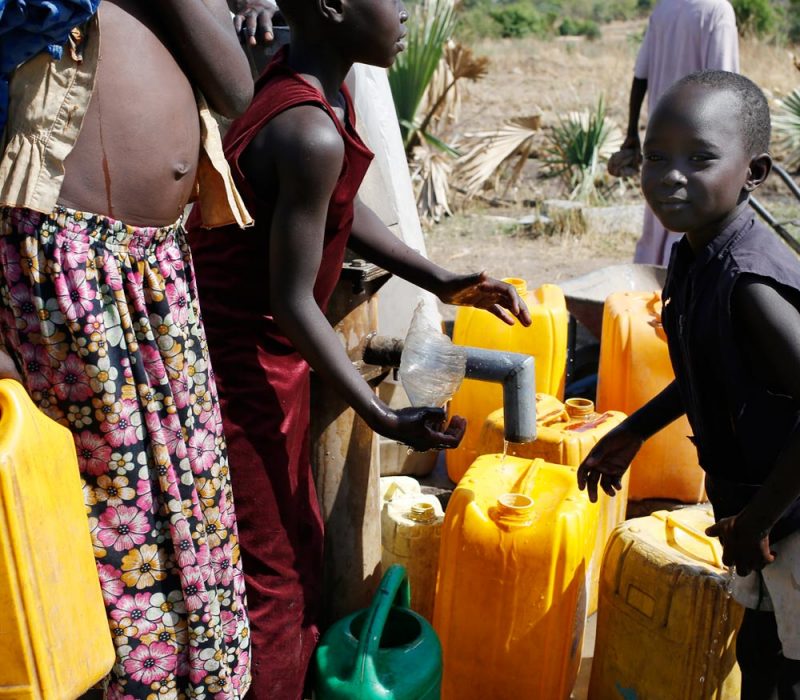
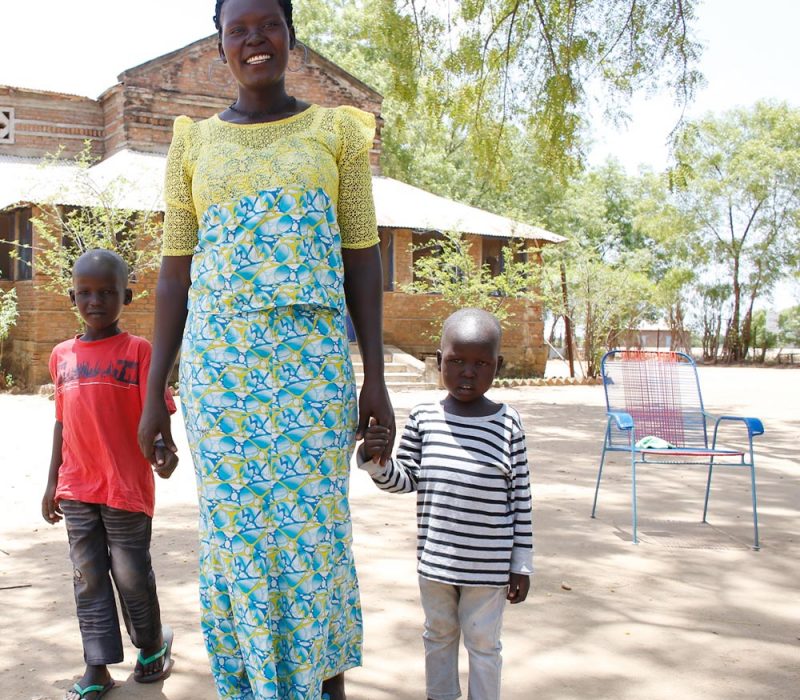
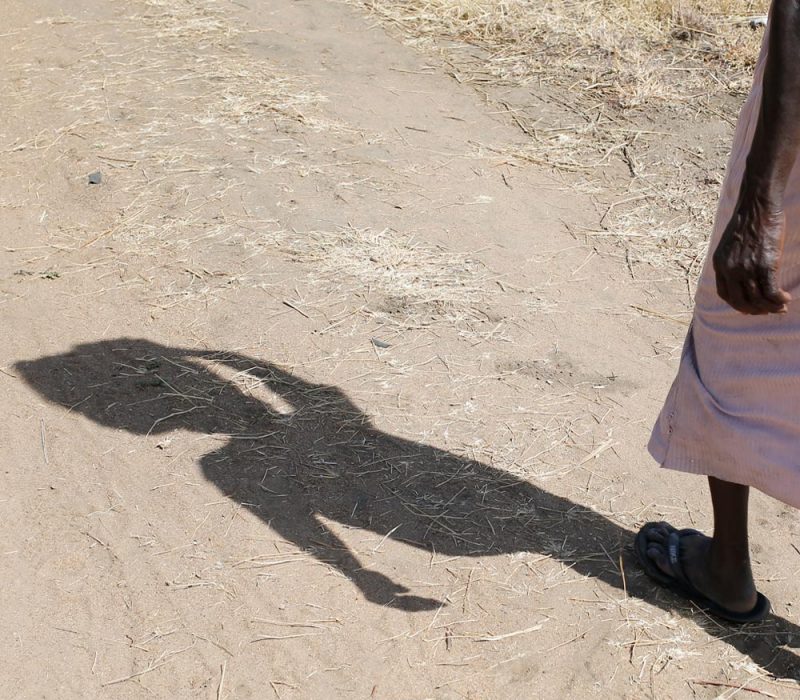
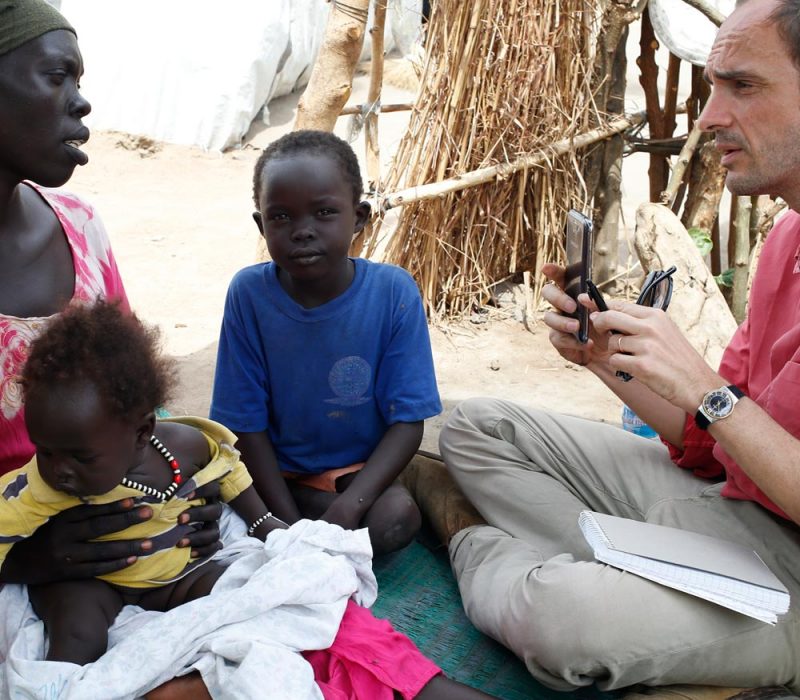
Famine has been declared in parts of South Sudan, but extreme hunger is widespread throughout the country. The food crisis is a perfect storm of war, drought, poverty and economic collapse.
“There was no rain last year, so the harvest failed,” said Joseph. You need fuel for the water pumps to irrigate, but are not allowed to fill a jerry can because they think you might give it to the rebels. So your crops die because of a lack of water even though we’re next to the Nile.
“Crops die because of a lack of water even though we’re next to the Nile.”
Hyper-inflation adds to the woes. “20 kilos of maize costs 2080 SSP today, last year it cost 800 SSP, 13 kilos of sorghum costs 700 SSP, last year it cost 2-300 SSP. Maize has gone up from 400 to 800 SSP, and the cost to grind it from 16 to 60 SSP,” he said.
The result is biting hunger. “Children don’t come to school because they are hungry, instead they go looking for mangoes on the riverbanks,” said Annet Kuli Wani, a local primary school teacher. “Even a teacher can’t stand in front of a class all day without fainting if she hasn’t eaten anything.”
Her mother is living as a refugee in Uganda along with Annet’s youngest children. Annet is a widow at just 28.“It’s heartbreaking to be away from the kids, but mum is looking after them. What can I do?”
As well as teaching, Annet is volunteering for Caritas. “My job is to identify families to receive food. We just do it to help the community. You have to help your people.” A cash-for-work programme is organised by the parish as well as food aid for the most vulnerable, the elderly, widows and new mothers.
Fr. Nicholas Kiri, the local parish priest, says that the community isn’t defeated. “Our lives appear so sad, yet small, good things are happening,” he said. “We built a kindergarten with two classrooms plus a toilet. When the children went back home, all they could talk about was the toilet: ‘so shiny that you could see your face in it’. They couldn’t believe something so beautiful was a toilet!”
The conflict that drives famine in South Sudan has at its heart tension between Dinka pastoralist cattle herders and Nuer or Equatorian sedentary farmers, with the government unable to provide security or often making the situation worse.
“Last Holy Week, 35 men came here, armed to the teeth and ready to kill,” said Fr Nicholas Kiri. The soldiers were reacting to the disappearance of some Dinka boys who had recently moved into the area. “The villagers all hid in the church in fear,” said the priest. “The officer in charge said, ‘People talk about no law in South Sudan. But see, we are the law’”.
A church and the chief’s house are all that is left standing of Lobonok, a village about two hours drive from Juba. All the other 365 homesteads have been burned down during tribal violence in February. When the army came to re-establish order, the soldiers went on a looting spree.
“Our house was burned down. When we saw people being killed, we ran to the school. We just grabbed the children and fled,” said Mary Joanne Guma, a mother of five.
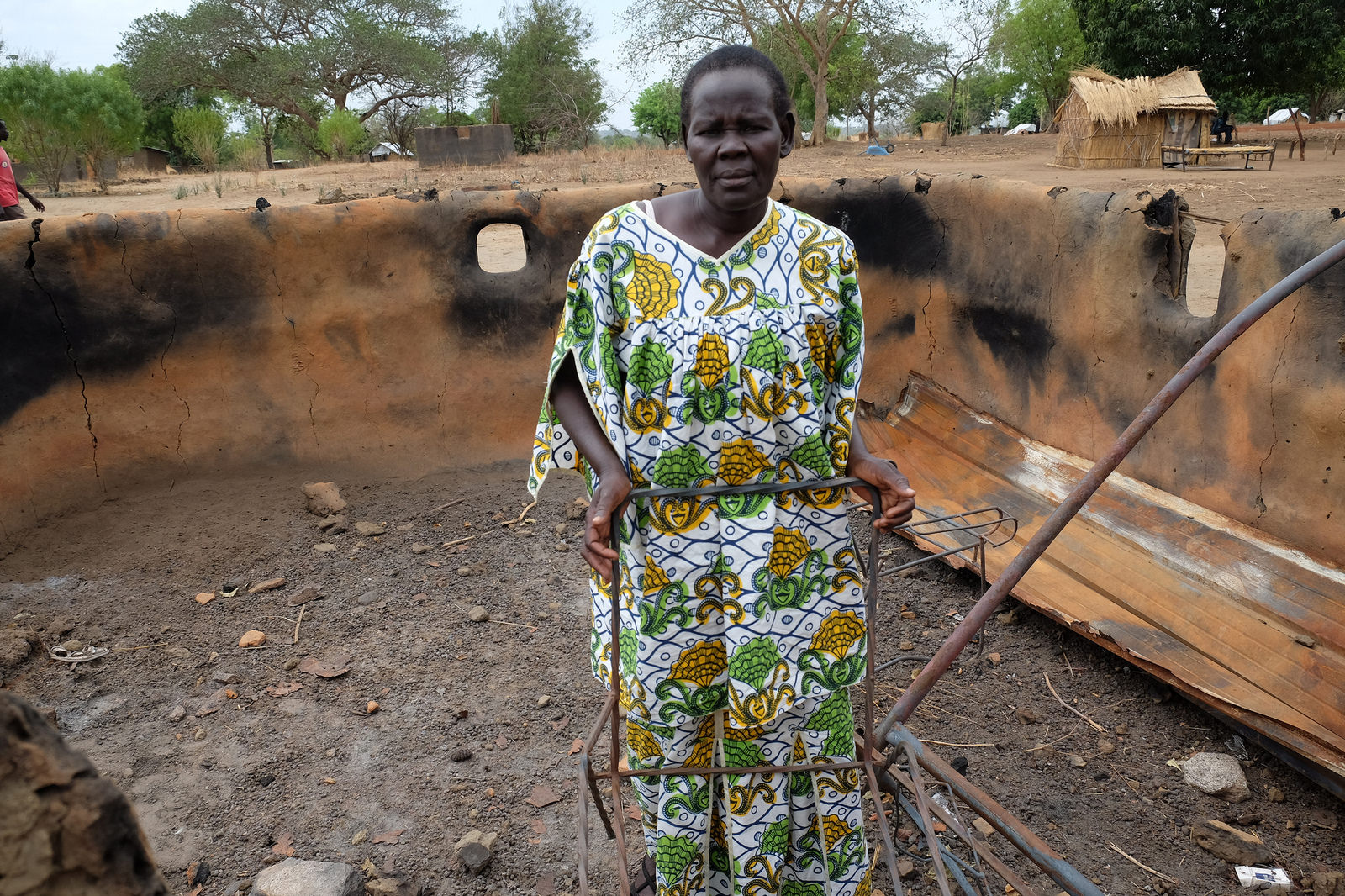
Dinka pastoralists were relocated to the village in 2007, driven off by locals and then returned with guns and an aggressive attitude.
Lobonok’s residents are now living in tents next to their burned out homes. The Dinka live nearby. “We’re scared of cultivating because of the pastoralists,” said the chief. “Before you could make charcoal to sell or collect wild vegetables but now it is too dangerous. The adults can resist the hunger, but not the children.”
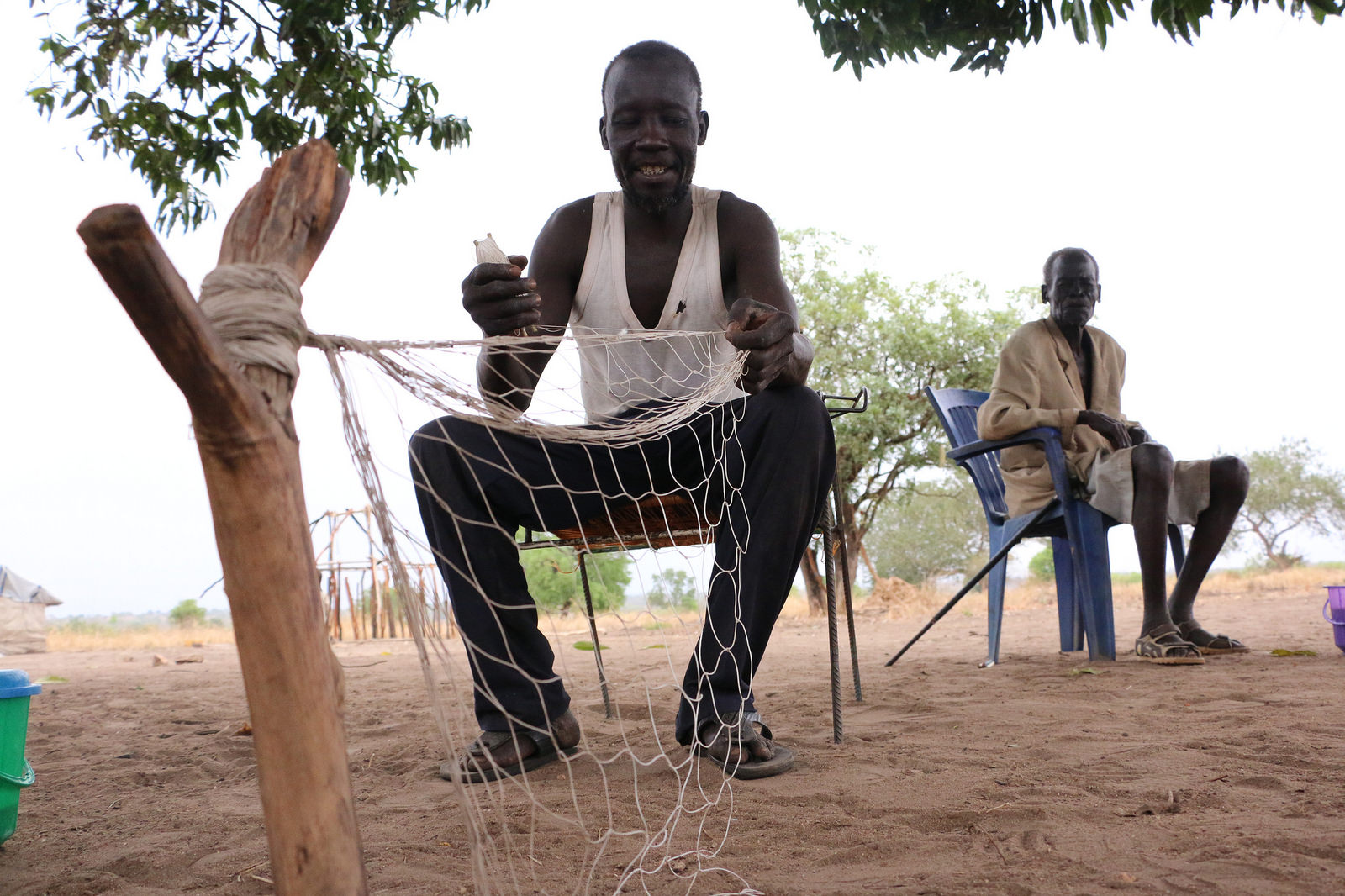
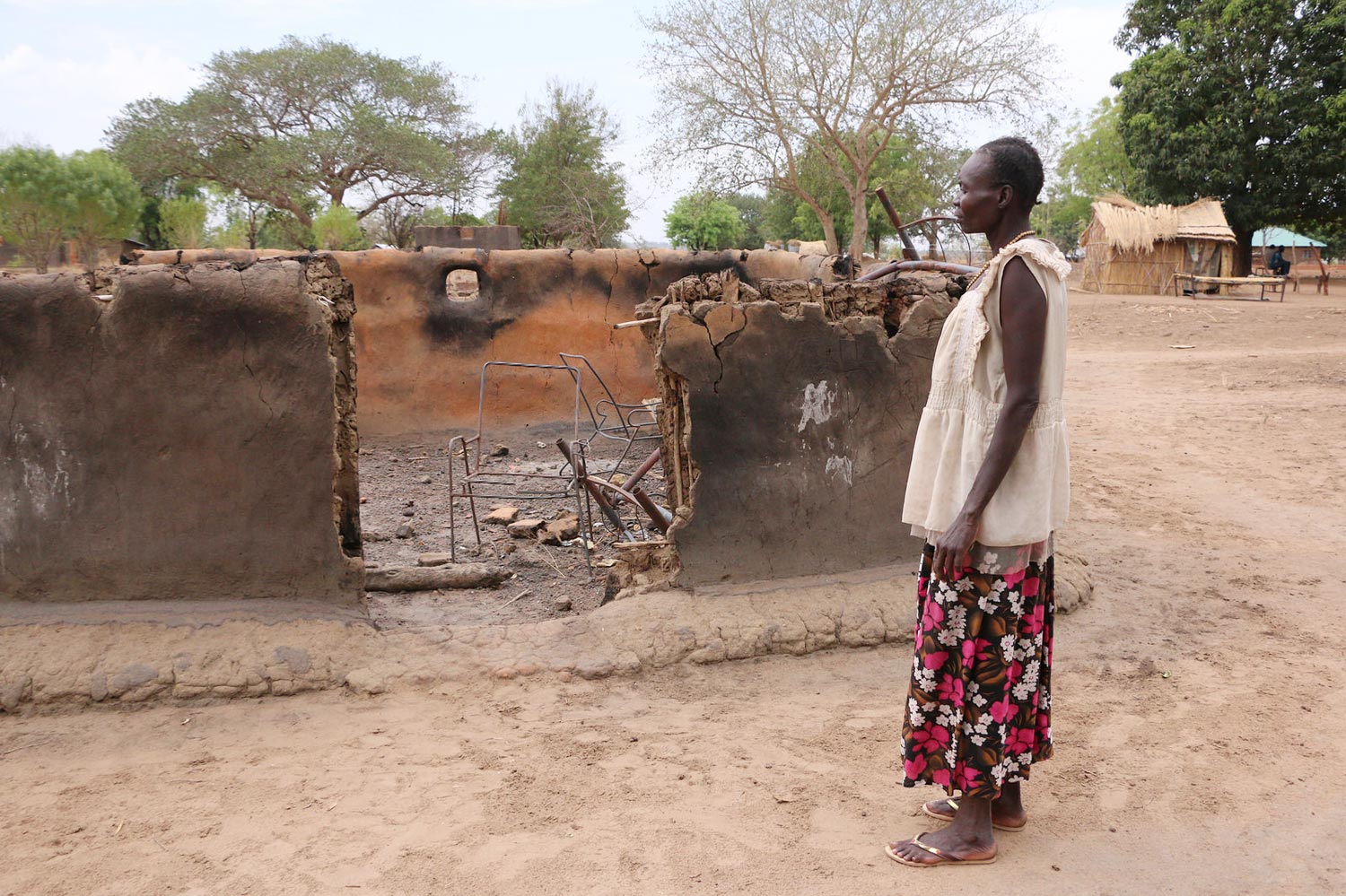
“A boy was killed in front of me. I could have been killed too,” said Simon Lokuji, the village chief. “When the fighting happened, it was harvest time. The animals ate all the food and everything in the houses is gone.”
Caritas has provided food aid but resources are scarce. “This is the last meal,” said Lily Poli, a local resident, stirring one pot of beans that will feed half a dozen children. “Tomorrow we have to eat and we don’t know how. We are praying hard that God will give us food. If we don’t get anything by April, we will be dead.”
Caritas Internationalis is appealing for support for South Sudan. “It is a major emergency,” said Yasser Elias, Caritas Juba emergency coordinator. “If the resources were available, I would do a blanket distribution of food, and maybe a cash distribution for the most vulnerable. At the moment, we have very little resources but we try to take care of the people.”
“This is the last meal…Tomorrow we have to eat and we don’t know how.”
South Sudan won independence from Sudan in 2011 after decades of war. Peace was short lived, by 2013 the victors had fallen out, plunging their poor underdeveloped country back into war. A shaky detente ended in July 2016, when violence emanating from Juba rippled out across the country.
“The fighting in July affected our village. Soldiers came with guns and tanks. My house was the first to be demolished,” said Estella Roman, a single mother of three children who lives in a tent in the Don Bosco IDP Camp on the outskirts of Juba.
“It was very frightening,” she said. “I had to flee, but I was separated from two of my children. I started to weep. It was a huge relief when I found them, but I had no idea how I was going to look after them.”
There are 500 families in the camp who arrived in 2013 and 700 families in a new section who arrived in July last year. The camp residents receive food, aid like sanitary items and schooling from the Don Bosco fathers. Caritas Austria is one of the donors.
“People were walking 90 to 100 km to come here with children on their backs. Many were sick from sleeping outside, or with Malaria or Typhoid,” said Fr. Matthew Job, who helps run the camp. “They told stories of rape and child kidnapping. Babies being pulled from their arms. Everyone has lost somebody,” he said.
Peace negotiations in South Sudan are making little headway. “You never had the killings like today. It’s the worst I have seen it during the 15 years I’ve been here,” said Fr. Matthew. “We need a conversion among the leaders who are propagating this violence. The international community needs to stop the selling of weapons into South Sudan. If we are too late we will have a situation like the genocide in Rwanda.”
“The international community needs to stop the selling of weapons into South Sudan. If we are too late we will have a situation like the genocide in Rwanda.”
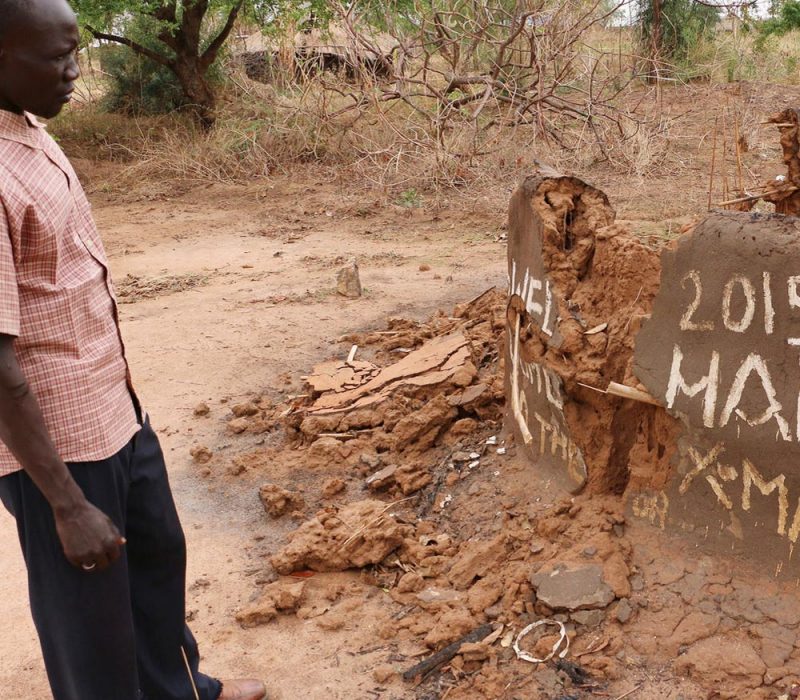
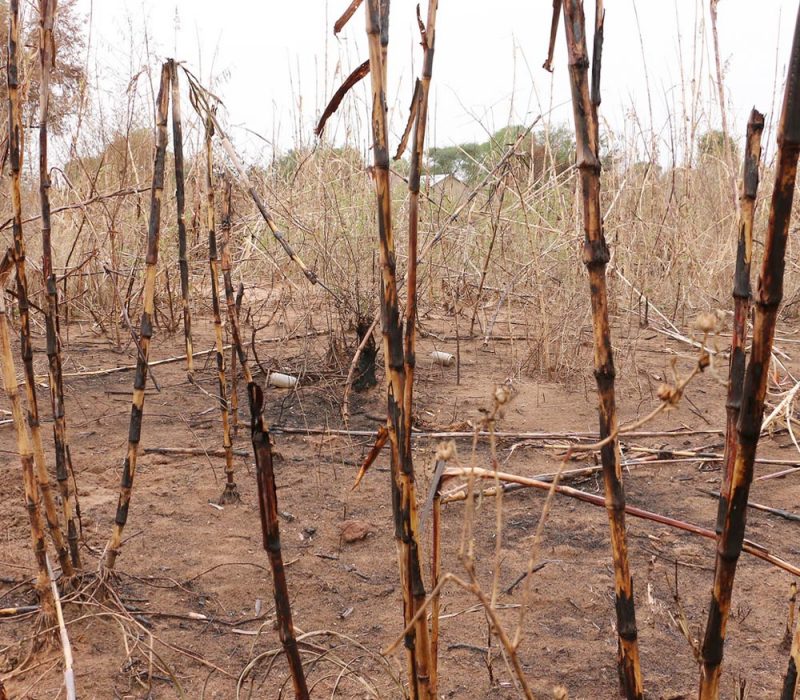
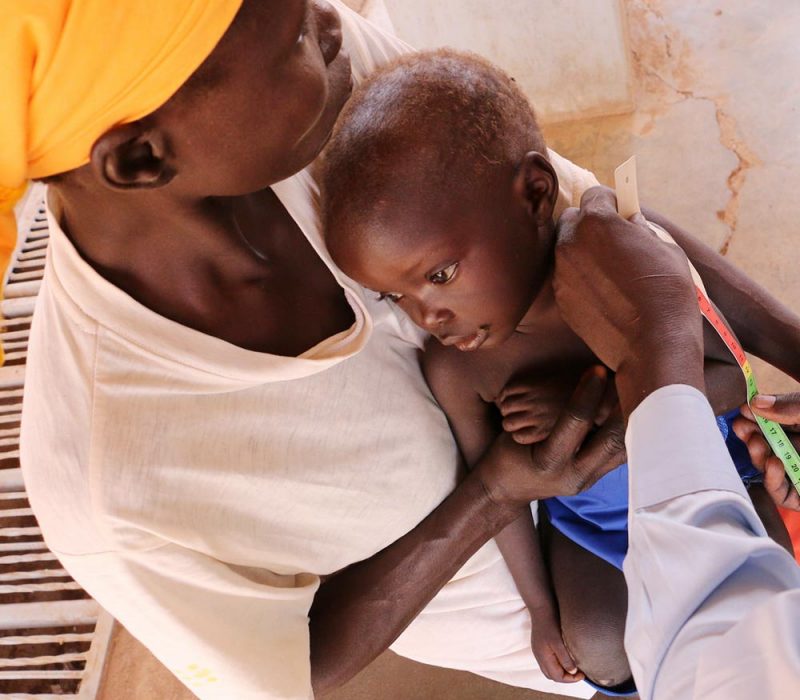
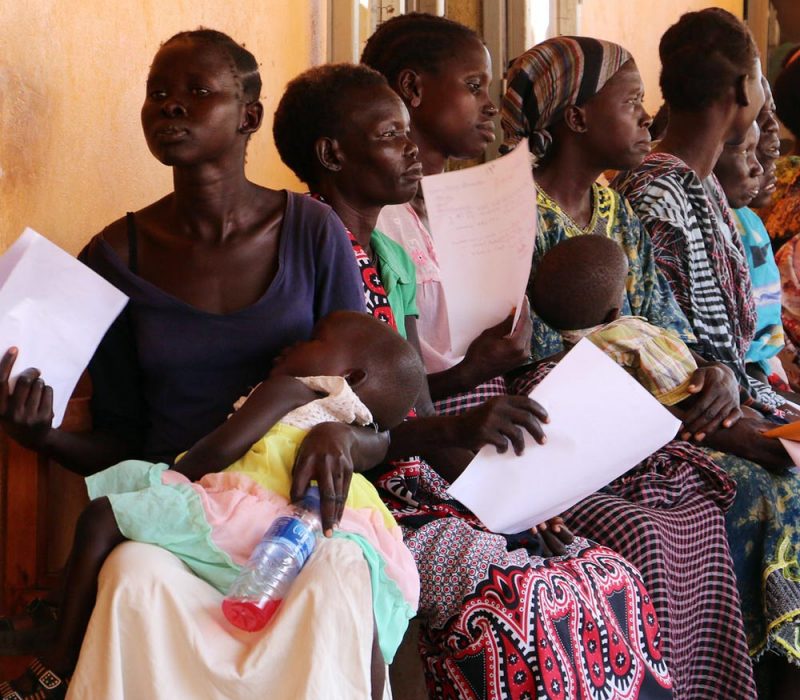
Enyif lies mostly deserted. The village near the town of Torit in South Sudan is now just a collection of charred roofless houses. “My people have scattered,” said Lino Manjat, the village chief. “Most have fled to Kenya or Uganda because of war and hunger.”
“There is only enough food to give you strength for a day to get more charcoal to buy food for one more day. If you don’t get wood from the bush to pay for food, you will die,”
A few have returned since the worst of the fighting earlier this year between government and rebel troops, although there are still flare ups of violence and hunger is rampant.
Susanna Gelasivo carries a heavy sack of charcoal on her head and 9 month old baby Ross on her back. Ross is her second child. Susanna is 15 years old. She is coming back from the bush on her way to the market. The charcoal will feed her extended family for a day.
“Armed men launch surprise attacks and you have no chance,” she said. “We don’t know what will happen to us when we are in the bush but with God’s protection everything is possible.”
There are no good choices.
“There is only enough food to give you strength for a day to get more charcoal to buy food for one more day. If you don’t get wood from the bush to pay for food, you will die,” said Lino. “People are starving.”
Basilio is the chief of nearby Illuhum village. “We cultivated the land but the prolonged droughts destroyed all the crops. We planted the 2nd season, but then war came and all the crops were burnt and we had to flee from the land,” he said.
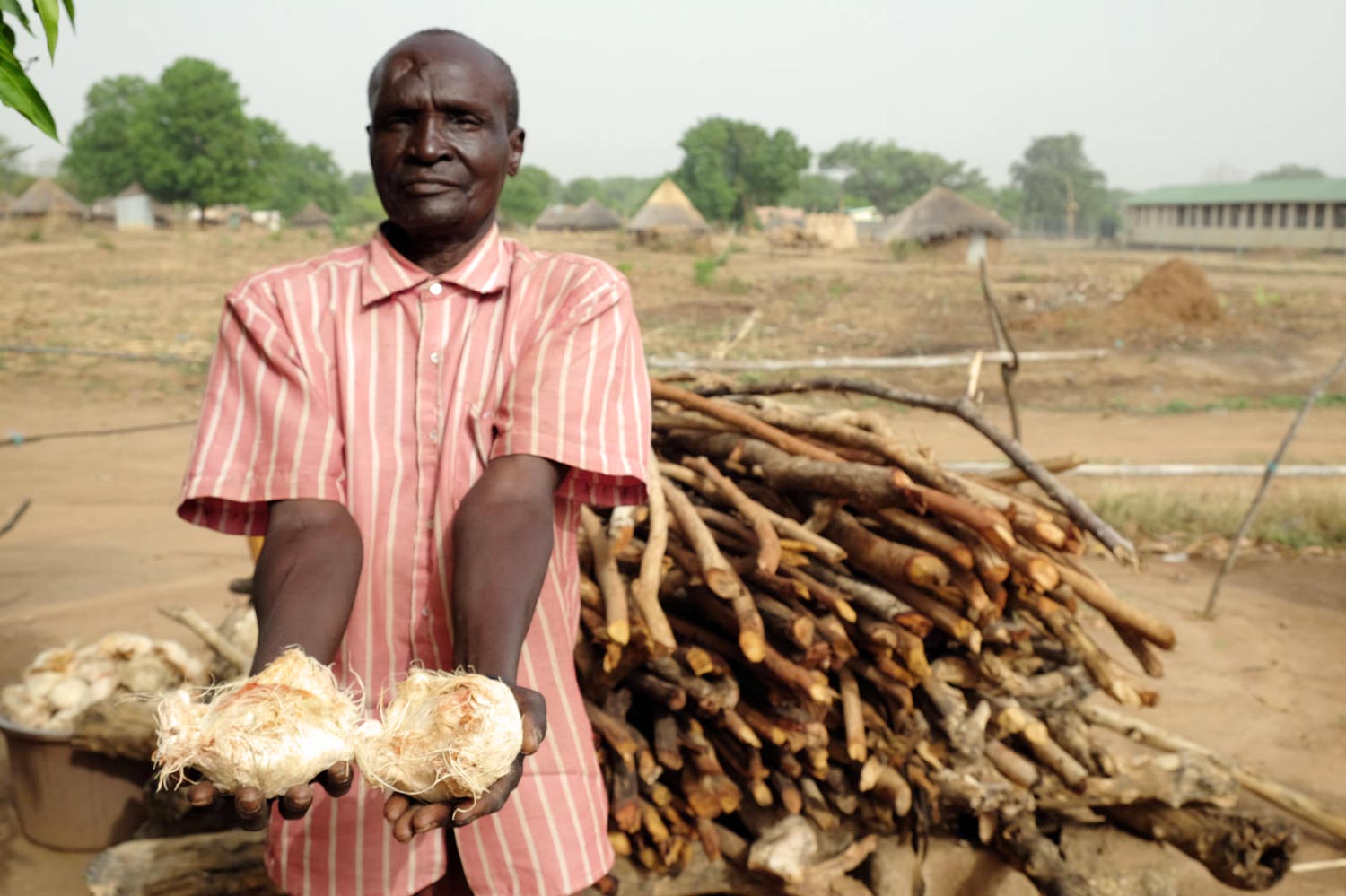
One of his neighbours is Iler Amir. She has nine family members to fed. “The hunger is the most difficult thing. We eat once a day – some wild coconut today,” she said. “If it was safe then we could go out to cultivate. There is fear of the gunmen. You either lose your life or they hurt you.” Caritas helped her with a distribution of beans, oil, sugar and maize flour.
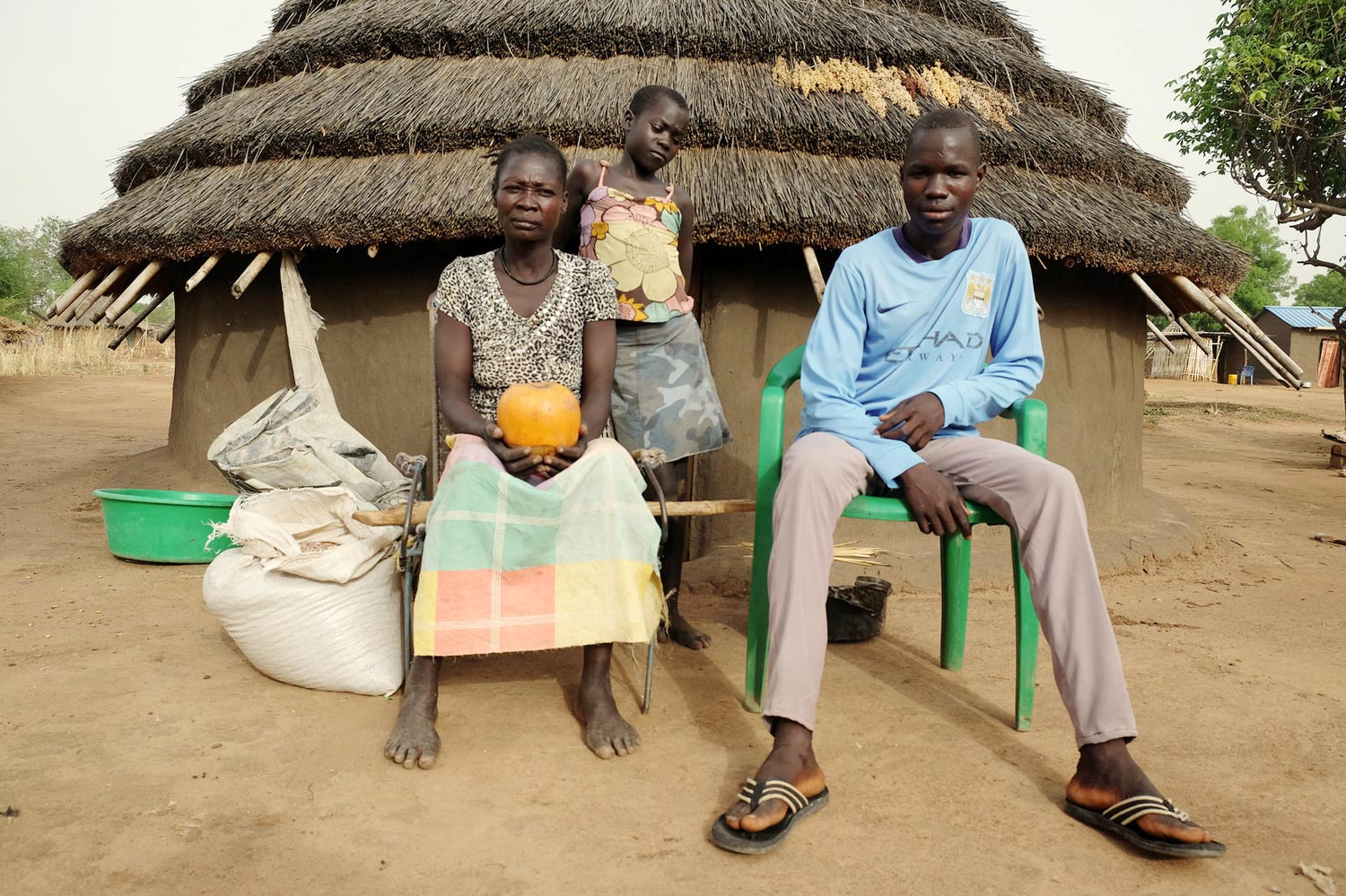
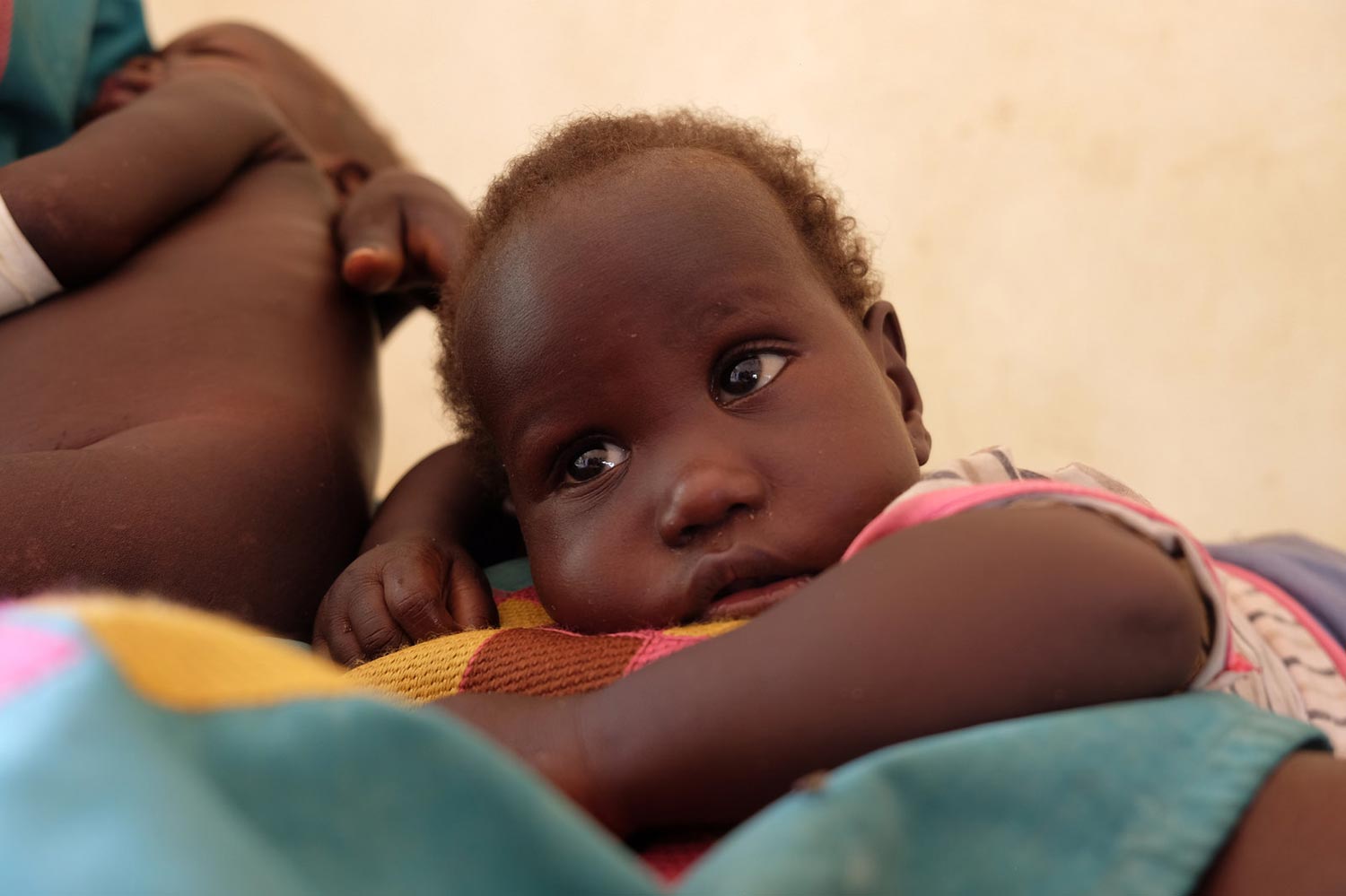
“Many people lost their last harvest because of the drought and have not been able to plant for the next one because of the war. Even those with jobs are in trouble, as inflation means their salaries are worthless.” said William Okot of Caritas Torit.
Signs of hunger are everywhere. In St Teresa’s school in Torit, attendances are down by a sixth due to the crisis. Even those pupils who do attend, leave early. “In the morning the children are in school, but in the afternoon they are gone because the school doesn’t have any lunch for them,” said Joseph Tombe, acting headmaster.
Caritas is providing funds to pay for materials and stationary but doesn’t have the resources for a school feeding programme. “Many children are staying at home – a feeding programme will encourage them come to school, where they will eat and learn,” said the teacher.
It’s hard to think that the women and children queuing up for malnutrition screening at Torit Hospital are the lucky ones. All the signs of extreme hunger are there, visible in the wasted bodies of the under-fives, in their swollen bellies and joints, in the heads out of all proportion to the fragile limbs.
“In the morning the children are in school, but in the afternoon they are gone because the school doesn’t have any lunch for them.”
“The situation in the rural areas is even worse because of the insecurity. We are not able to reach them and they can’t reach us,” said John Isaac, the medical director. “Malnutrition is simple to treat as long as there are no medical complications. If they come too late then they can die.”
Currently 7 percent of children who are screened for malnutrition in the hospital will die. “Last year, we lost 15 children in a month because we ran out of supplies,” said Loki Martin Lockare, a nurse in the malnutrition unit. “It’s frustrating but there is nothing you can do.”
The worst cases are put onto the wards. “The child improves but then they are back,” said the nurse. “We give them nutritional information on what is available in terms of wild food. The problem is that there is nothing available. If we give the mother supplementary food, then they will share it among all the children and the same child is readmitted.”
South Sudan faces a grave humanitarian crisis. Caritas is appealing for aid, but also advocating for an end to the war. “If you give just food, it’s ever decreasing circles,” said Fr. Joseph Logura, Secretary General of Torit Diocese.
“The war is very bad,” he said. “People are getting more frightened. One day there will be a massacre. We ask people to continue giving us food aid, but there can be no end to the famine until the war is over. It’s our prayer that this war stops.”